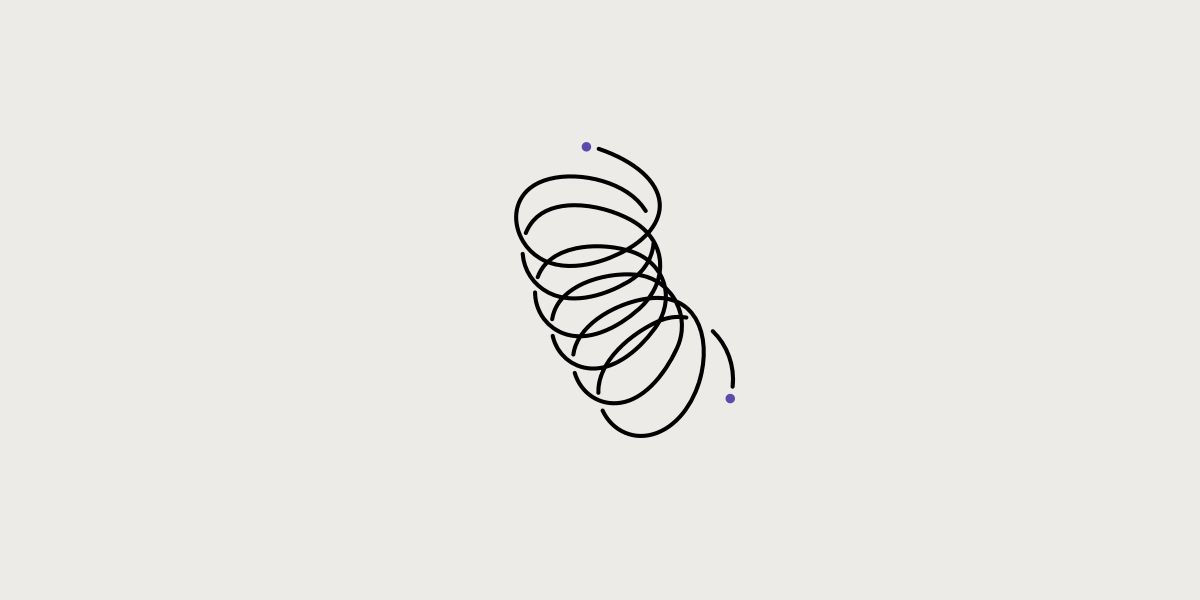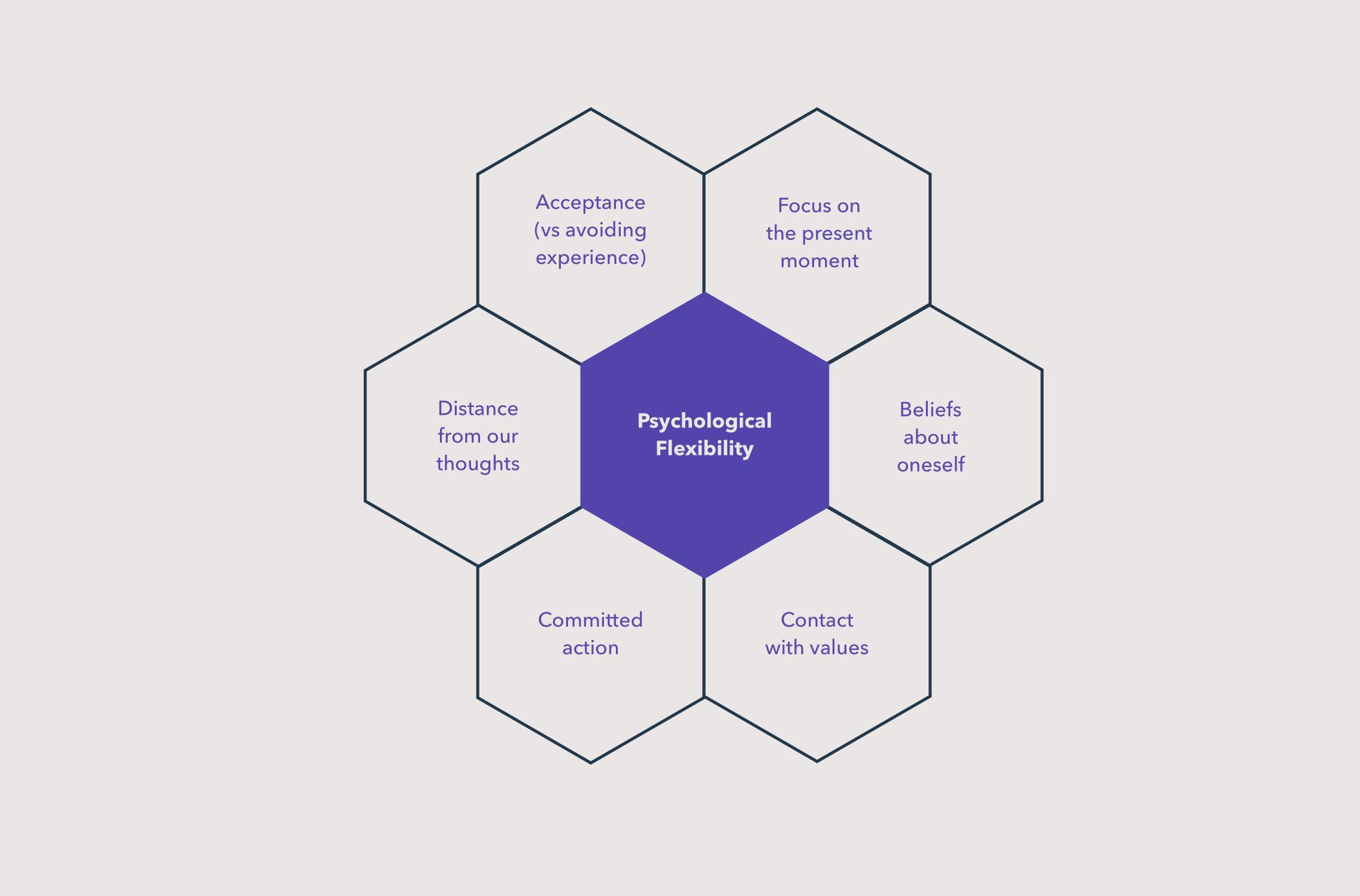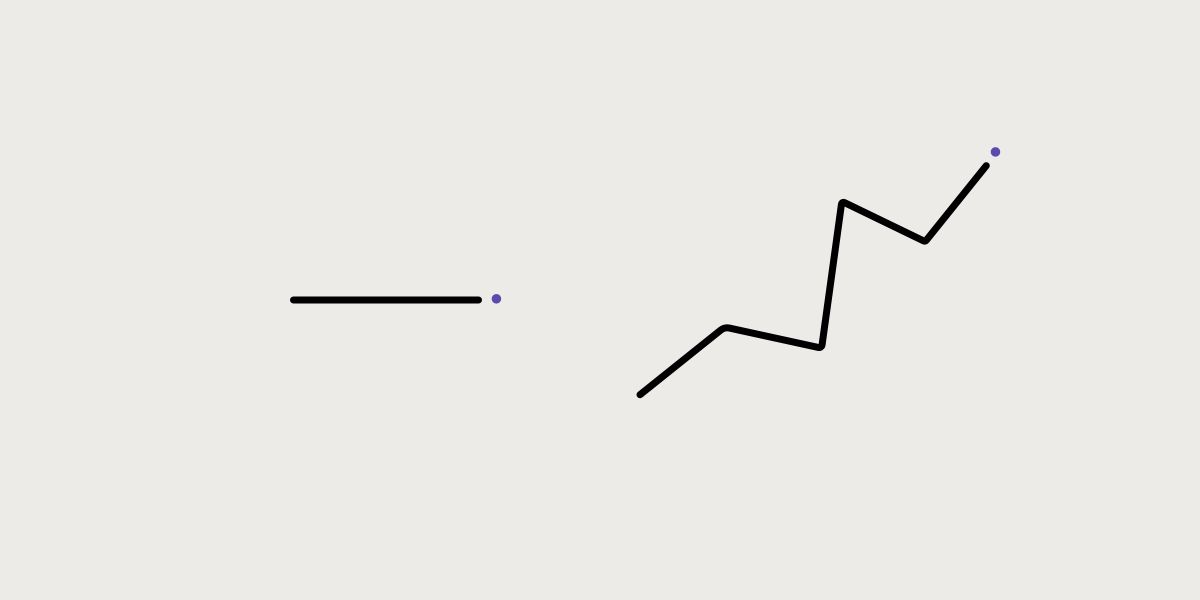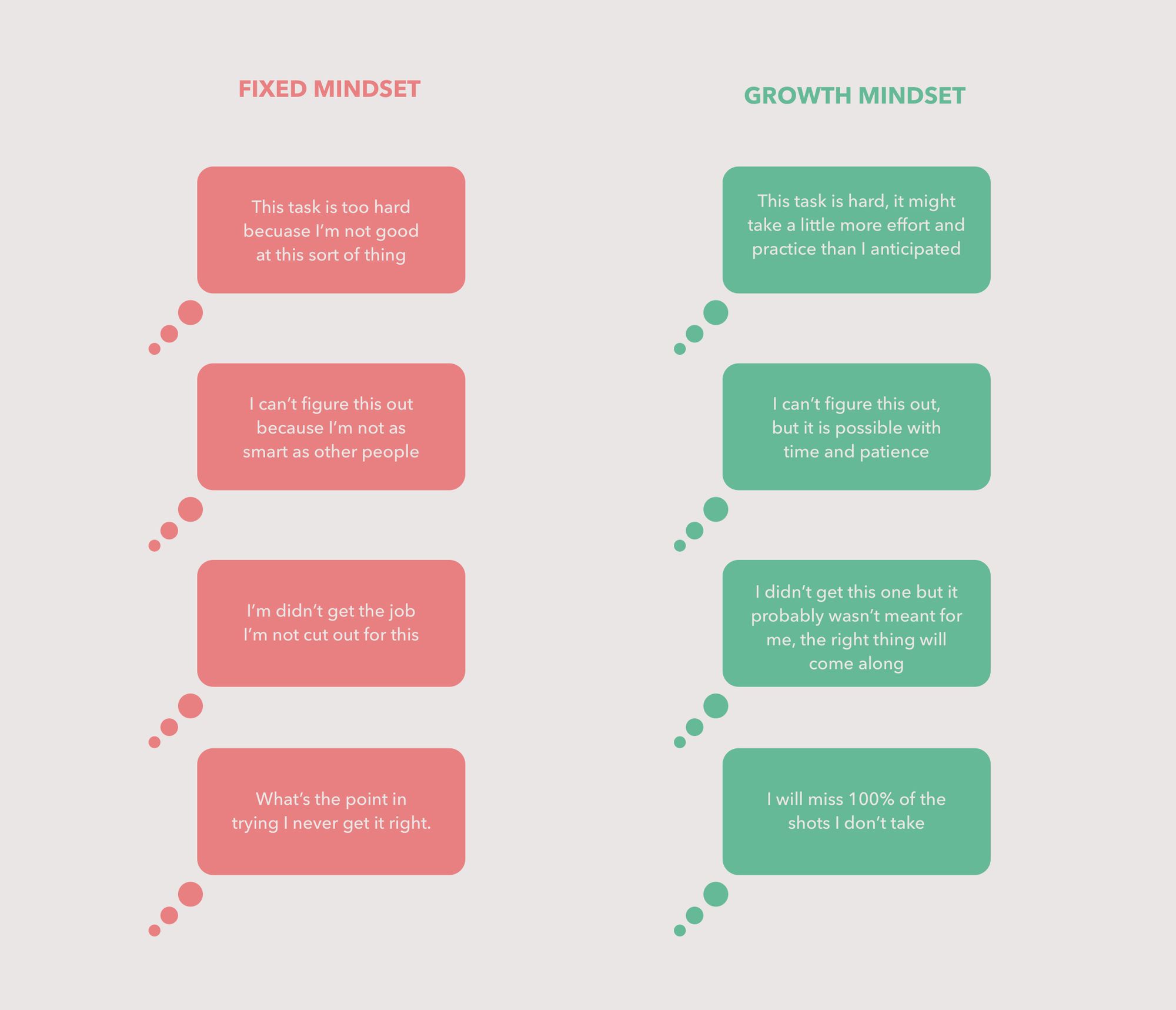As designers, we will deal with many things throughout our careers, the inevitable imposter syndrome (no matter how good we get), the stress of impossible deadlines, the never-ending stream of new things to learn, the burn-out from long hours or the emotional toll from conflicts in the workplace.
You might think that your visual design talent, research skills or ability to present and communicate your design decisions are among the most important skills to master as a UX/UI or Product Designer. But, while these are all important, what I've found is that the key to doing great work and having a long, happy and successful career in product design is actually predicated on another skill you may not have thought of.
Whether it's regarding the experiences we are crafting for our users or the ones we are facing ourselves, the real challenge in our work is in how we observe, think through and react to problems and how we show up to solve them and for that, we require a healthy degree of what is known as psychological flexibility.
Psychological Flexibility for Designers

Psychological flexibility refers to our ability to bend our minds so to speak. It's the ability to become aware of, be present in the moment and, react to and adjust our thinking and behavior based on our long-term values rather than short-term goals; such as our ever-changing landscape of thoughts, emotions and impulses.
A short-term goal for example might be to get a promotion, while a long-term value might be to continuously improve our craft.
Thinking and reacting in terms of long-term values takes us from a place of negative reinforcing thoughts such as "I'm an imposter", "I can't believe I didn't get that promotion", "I'm awful at my job"or I'm gonna get fired" to a place of positive reinforcing thoughts like, "Oh well, even though I didn't get the promotion, I'm glad I'm still able to work on my craft every day!" I may not feel like I know everything yet, but I'm not an imposter, I'm still learning like everyone else."
When we focus on long-term values first, short-term goals can be seen more as a stepping stone or a part of the journey rather than a finite endpoint.
"When it comes to careers, instead of searching for the job where we’ll be happiest, we might be better off pursuing the job where we expect to learn and contribute the most." - Adam Grant, Think Again
The short-sightedness of hinging everything on our short-term goals can close us off to opportunities and the 'positive stress' that could help us grow and improve.
The tricky part is that as a survival mechanism, human thought and emotion are usually skewed towards negative bias.
The Downward Spiral

When we are psychologically inflexible, one bad thought can quickly domino effect into many others and without training, we can find ourselves easily spiraling out of control.
Take for example a day when you are feeling particularly down on yourself. Perhaps it started the night before because your noisy neighbor kept you up all night.
You wake up feeling groggy, a bit low on energy, you don't have time to find an outfit that you really feel good in and so you hustle off to work not feeling your most vibrant and confident self.
You arrive late to work and your manager makes a comment. You start to feel even worse, maybe associating the comment with your performance, feeling upset by their tone, perhaps you experience some imposter syndrome when that same manager complements a colleague.
Your thoughts whisper things like. "I am terrible at my job, I'm ugly, I hate my neighbor, my manager is a jerk!"
Later that day, you are conducting user interviews, but you are distracted by your thoughts and feelings you might not be fully present with your participant.
This is no good for your mental health as a designer or the data that you will collect from your users that will then become a part of your designs that will be used by many others.
So how can we achieve a higher degree of psychological flexibility when our mind and our thoughts are default to self-sabotage? Luckily there is a very simple way to teach our minds to bend.
Applying Mindfulness

Mindfulness is a very powerful skill that helps us become more psychologically flexible, by training ourselves to be fully present to the fleeting nature of what we're thinking and feeling and helps to remind us of our deeper values and connections so that we can use those as guiding principles whenever difficult emotions, thoughts or circumstances arise. Like reps for our mind each time we come back to the breath and the present moment, we build up greater psychological flexibility.
Professor Steven Hayes, the co-developer of Acceptance and Commitment Therapy, defines psychological flexibility as the ability to ‘make contact with experience in the present moment fully and without defense’.

Mindful exercises like those that I practice with my product design students are extremely useful to help us become less ridged and not let our thoughts and emotions run away with us. This kind of mindful observation helps us adopt a more growth-based mindset that is aligned with our values.
Fixed vs Growth Mindset

According to Carol Dweck and her team at Stanford University, people essentially adhere to one of two mindsets—a growth or a fixed mindset.
A fixed mindset is based on the belief that our core personality traits, talents and intelligence are immutably engrained. Those with a fixed mindset tend to think that we each are born with a certain level of intelligence and skill that cannot be much improved of altered. They see failure as confirming this and often use it as a justification for not striving towards their goals or as blame for why they are unsuccessful.
A growth mindset is based on the belief that while our unique proclivities and level of intelligence may vary from person to person, it's also something that can be developed and increased through practice, effort and habit. Those with a growth mindset take joy in the learning process that comes from seeking new information, forming new strategies, and taking inspiration from others. They embrace difficulties and challenges as a means to develop, grow and self-actualize.

Mindfulness is a practice that can help us recognize what mindset we're in at any given time and allow us to create the space to access and adjust based on our long-term values. The power of this work is in the way it helps us feel more empowered to improve and grow with experience, move toward challenges, live in the moment, and discover new things about ourselves and others.
Interest doesn’t always lead to effort and skill; sometimes it follows them. By investing in learning and problem solving, we can develop our passions—and build the skills necessary to do the work and lead the lives we find worthwhile. - Adam Grant, Think Again
Catch the Spiral

Imagine on that same day; waking up feeling groggy and tired you mindfully decide to slow down and observe your thoughts instead. Noticing that you are a little bit more tired than usual, you opt to spend less time scrolling through your phone so that you can have a few extra minutes to pick out a nice outfit and even if you think to yourself "okay it's not the best but it's not too bad either, at least my hair looks great!"
You get to work and you notice the irritation arise in you moments after your manager makes a comment, your mind starts to spiral but you mindfully observe it instead of buying into your initial thoughts about it, you remind yourself of your values and think to yourself, "Well I've only been late two other times this year that's not bad! Maybe my manager had a rough night too."
You can clearly see the difference here between falling into the downward spiral vs observing the nature of what is happening mindfully and not tying our judgments, fears or emotions directly to the thoughts we are thinking and emotions we are feeling.
"It's liberating to realize that you don't have to believe everything you think!" - Elizabeth Alli
3 Ways to increase Psychological Flexibility
- Mindfully observe - Stay rooted in the present moment when difficult thoughts, feelings, and sensations arise; don't avoid or judge, just witness.
2. Take a step back - Take a broader, more holistic view of the situation and all of the possibilities within it.
3. Remember your values - Remind yourself of your highest values then make decisions and act accordingly.
Psychological flexibility of our users
As UX and Product Designers, it's also important to consider the psychological flexibility of our users too and how it affects the way they experience our products.
Using a new app can cause a certain degree of cognitive friction; something that occurs when a user is confronted with an interface or affordance that appears to be intuitive but delivers unexpected results.
This mismatch between the outcome of an action and the expected result can cause user frustration and potentially impair or jeopardize the user experience.
3 Ways to lower the cognitive friction of our users
- Be there fully - Be present with your participants when interviewing them, put on your empathy shoes, imagine their world, try doing something in the way that they would.
- Beware the bias - Watch for your judgments, fears and desires. Instead, be a good scientist and try to observe behaviors, facts and be open to being proven wrong or surprised.
- Follow best practices - Learn and apply good design principles, patterns and learn more about UX laws and usability heuristics. Avoid dark design patterns.
- Let go of your assumptions - Be prepared to throw it all out the window and start again.
For example, I had been working on an app for new moms and so I decided to try my best to take step into their world. I wrapped a watermelon in a blanket and tried carrying it around for most of the day while I did things. It was harder using some of the features on my mobile prototype than I'd thought with one hand. It made me rethink some of the design layout decisions I had made and even change the button sizes and some of the sleek, minimalist elements that I really thought were beautiful in favor of more functional elements.
Earlier in my career, I would have just made a good guess after talking to some users and then copied similar designs because that was more or less how I defined my job as a designer. But by being flexible about 'my role' and wanting to deeply understand our users I was able to step outside of my usual process and try something different that resulted in creating a far better experience for them.
It's our job as designers to recognize our own mindset, set our long-term values and develop better psychological flexibility in order to protect against the stress of the work that we do and the cognitive load levied to our users. By being more mindful and creating intentionally designed interfaces we have the power to create technology that enhances the experience for the designer and the user.
I believe the most powerful UX skill is our ability to mindfully meet each other where we are, with what we have, in order to help one another get to where we want to go.
Come learn Mindful Design and Interaction with us at DesignerUp!
References and Further Reading:
Kashdan, T., & Rottenberg, J. (2010). Psychological flexibility as a fundamental aspect of health Clinical Psychology Review, 30 (7), 865-878 DOI: 10.1016/j.cpr.2010.03.001
